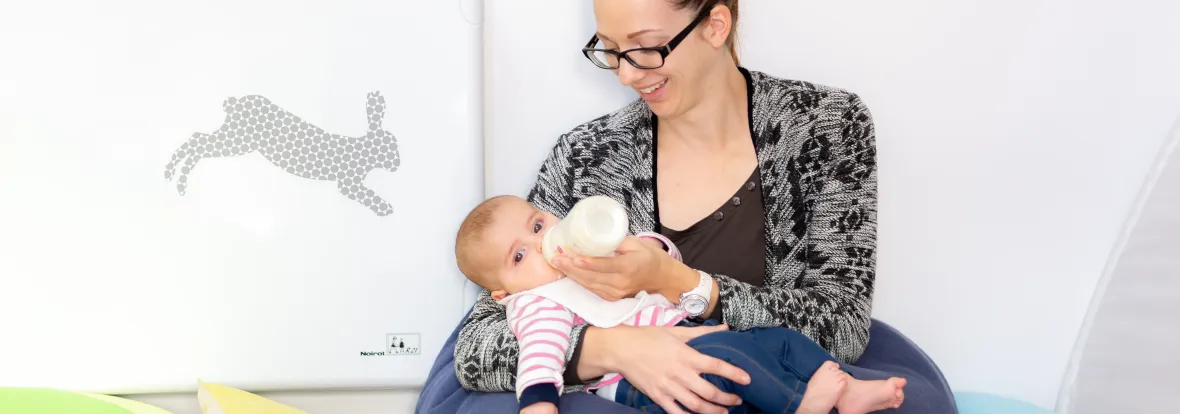The field of Early Childhood requires a set of specific skills and qualities to ensure the well-being, safety, and development of young children. Whether you aspire to become a young children's educator, a nursery assistant, or to occupy other roles in the Early Childhood sector, it is essential to understand the necessary skills for working in a nursery.
Required Skills and Qualities
Empathy
Empathy is the ability to understand and share the emotions of children and their families. It helps create a warm and reassuring environment, promoting emotional development in young children.
Listening and Observation Skills
Active listening and observation are crucial for identifying the various needs of each child. A nursery professional must be attentive to verbal and non-verbal signals from children to provide the necessary care and understand when something is wrong.
Patience
Patience is an essential quality when working in a nursery. Young children can be demanding and sometimes need time to develop their autonomy. It is important to be patient in interactions with children, listen to them, and support their development.
Gentleness and Kindness
These two qualities are essential if we are to establish a relationship of trust not only with our little ones, but also with their families. Early Childhood professionals must be kind, caring, and able to form an emotional bond with the children in their care. This helps create a safe environment where children feel comfortable to explore and learn.
Tact and Discretion
Nursery professionals are regularly in contact with parents and know personal details about the families they work with. Discretion is essential to respect the privacy of families and maintain a trusting relationship.
Creativity
Creativity is necessary to design stimulating activities that are age-appropriate. It promotes the cognitive development of young children.
Authority
A gentle authority is needed to establish boundaries and rules, helping children feel secure while learning to respect others.
Being a Good Communicator
Good interpersonal skills are crucial for interacting effectively with other members of the teaching team, children and their parents. The ability to build positive relationships is fundamental.
Teamwork
Working in a nursery also means being part of a multidisciplinary team. Collaboration with colleagues is essential to ensure the well-being of the children and the smooth functioning of the nursery. Nursery professionals must be able to work harmoniously with their colleagues to ensure continuity in the care and education of the children. Open communication and the ability to resolve conflicts constructively are essential.
Sense of Responsibility
Nursery professionals have the significant responsibility of ensuring the safety, well-being, and development of children. A strong sense of responsibility is indispensable.
Technical Skills Required
In addition to personal qualities, there are a set of technical skills essential for working in a nursery.
Hygiene and Safety
In a nursery setting, hygiene and safety are top priorities. Professionals must have a solid knowledge of cleaning techniques and hygiene standards, as young children are more vulnerable to infections. Keeping the premises clean and disinfecting toys is essential for their well-being. Additionally, ensuring the safety of children is a major responsibility. Professionals must remain vigilant to prevent accidents, supervise children during activities, implement safety measures, and be able to intervene quickly when needed.
Knowledge of Early Childhood Education
One of the fundamental skills for working in a nursery is a solid foundation in technical and pedagogical knowledge. Early Childhood professionals must be able to prepare and supervise age-appropriate activities that align with the educational approach of the nursery. These activities play a crucial role in the cognitive, social, and emotional development of young children. Therefore, each Early Childhood professional must undergo specific training to work in a particular role.
Common Qualifications or Working in a Nursery:
- CAP Early Childhood: This qualification allows you to become an assistant educator.
- DEAP (Diplôme d'État d'auxiliaire de puériculture): This is the diploma that enables you to work as a nursery assistant, with a focus on caring for infants and babies.
- DEEJE (Diplôme d'État d'éducateur de jeunes enfants): This diploma opens the doors to a more responsible position, where you will design the educational project of the nursery and manage activities and games. Young Children's Educators must be capable of creating a stimulating and safe learning environment.
Meal Preparation
For those responsible for preparing meals in a nursery, nutrition and cooking skills are required to provide a balanced and healthy diet for all the children.
Working in a nursery is a demanding profession that requires both personal qualities and specific technical skills. Whether you are already in the Early Childhood sector or planning to enter it, developing these skills and qualities will enable you to succeed in your role and contribute positively to the development and growth of young children.
Also Read :
- How to apply for multiple positions in our nurseries?
- The role of a Young Children's Educator (EJE)
- The EJE exam
- Careers and qualifications for working in a nursery
- What training is required to work in the Early Childhood sector?
- What salary can one expect working in a nursery in Luxembourg?
- What are the responsibilities of an Early Childhood Educator?
- What skills to highlight as an EJE on your CV?
- Career progression: what to do after becoming an EJE?
- Where can an EJE work?
- The role of a nursery assistant
- What is the salary of a nursery assistant?
- What is the salary of a nurse in a nursery?
- What training is needed to become an EJE?
- Which organizations offer EJE training?
- The role and objectives of a specialized educator in a nursery
- Everything you need to know about Validation of Prior Learning (VAE)
- Doing an internship or apprenticeship at KidsCare
- Accredited Training Centers
- Supporting your children daily
- Applying for a job at Babilou Family Luxembourg
- Our jobs
- Discover our job offers


